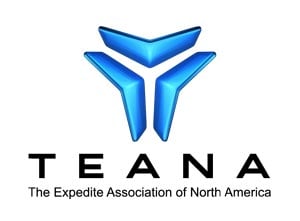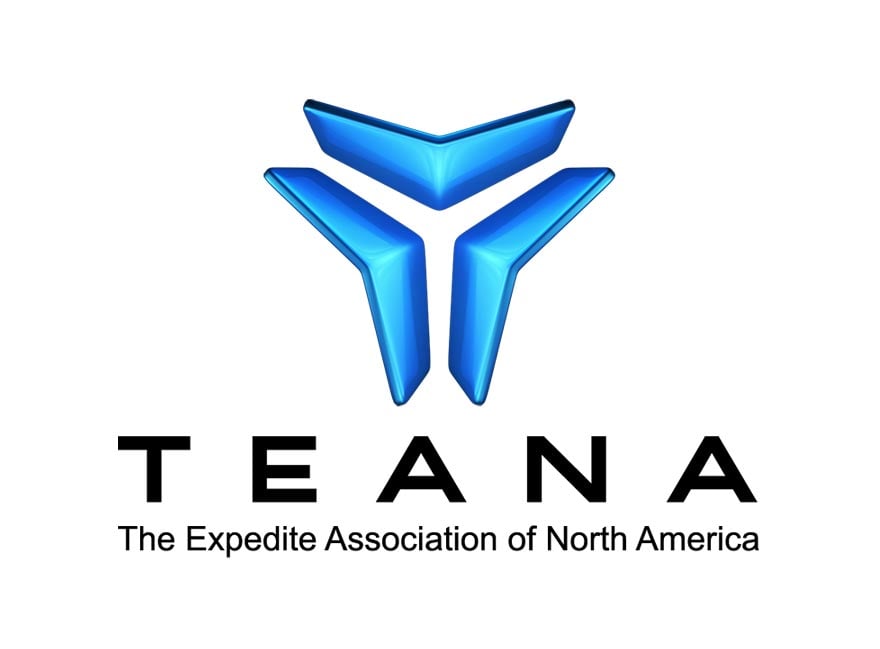
Contents
Regulation and Enforcement
- FMCSA to revisit state regulation of drivers’ rest breaks
- Three devices removed from list of registered ELDs
- FMCSA updates technical guidance on ELDs
- Brian Stansbury appointed FMCSA’s chief counsel
- FMCSA rejects driver’s requested exemption from multiple HOS requirements
Legislation
- Senate DOT funding bill would block younger driver program mandates
- Senate bill would establish a carrier selection standard
- House bill would overturn minimum training requirements for new drivers
- Senate bill would bar FMCSA from implementing a speed limiter rule
Courts
Advocacy and Comment
Regulation and Enforcement
FMCSA to revisit state regulation of drivers’ rest breaks
The Federal Motor Carrier Safety Administration has taken the unusual step of inviting two states to seek relief from adverse regulatory actions that FMCSA itself had executed. During the Trump administration, FMCSA declared that meal and rest break (MRB) regulations in California and Washington were preempted by federal law to the extent that they applied to interstate commercial motor vehicle (CMV) drivers. In an August 14 Federal Register notice, the agency announced that it would entertain petitions from California and Washington for waivers from those decisions. FMCSA gave the states until November 13 to file petitions.
In its notice, FMCSA said that the states did not need to argue that FMCSA erred in its rationale for issuing the preemption declarations and encouraged them “to include arguments that do not depend on a conclusion that the Agency's preemption determinations were erroneous.” The states need only to demonstrate to FMCSA’s satisfaction that a waiver from preemption is in the public interest and is consistent with the safe operation of CMVs, FMCSA said.
Given that FMCSA solicited petitions for waivers on its own initiative, it would be reasonable to assume that the agency under the Biden administration is predisposed to reverse the preemption rulings through the mechanism of waivers. However, FMCSA did ask the states to address three specific issues: (1) whether and how the MRB laws have affected the health and safety of intrastate drivers, who are not covered by the preemption declarations; (2) whether enforcement of the laws on interstate CMV drivers will exacerbate existing truck parking shortages and create additional dangers to drivers and the public; and (3) whether enforcing the MRB laws on interstate CMV drivers.
For the Federal Register notice, visit https://www.federalregister.gov/d/2023-17463.
Three devices removed from list of registered ELDs
Effective July 25, FMCSA has removed ALLTRUCKERS ELD, PRIMELD and SECURE ELD from the list of registered electronic logging devices (ELDs) and placed them on the list of revoked devices due to a failure to meet the minimum requirements established in 49 CFR part 395, subpart B, appendix A. Motor carriers using revoked devices must immediately discontinue their use and replace them within 60 days of the revocation. In the interim, carriers must revert to paper logs or logging software.
FMCSA also had initially revoked the registration of GOLDEN ELD with the same effective date, but it promptly reinstated the device. For a list of registered and revoked ELDs, visit https://eld.fmcsa.dot.gov/List.
FMCSA updates technical guidance on ELDs
FMCSA on July 31 updated its regulatory guidance to address several issues related to the operation of ELDs. The guidance answers questions related to the editing of automatically recorded driving time, the duty status change events that must be included in ELD output files, the caching of ELD data, and the operation of ELDs that have multiple components. For the latest regulatory guidance, visit https://www.fmcsa.dot.gov/guidance.
Brian Stansbury appointed FMCSA’s chief counsel
FMCSA has named Brian Stansbury chief counsel, replacing Earl Adams, Jr., who recently became the agency’s deputy administrator. Prior to joining FMCSA, Stansbury was a partner at King and Spalding LLP where he served as a member of the firm’s environmental, health, and safety practice. Originally from Houston, Stansbury received his bachelor’s degree from the University of Texas and a juris doctor degree from the University of Virginia School of Law.
FMCSA rejects driver’s requested exemption from multiple HOS requirements
FMCSA has denied an application from truck driver John Olier for exemptions from the 11-, 14-, and 70-hour rules withing the hours-of-service regulations along with all mandatory rest periods, including the 10-hour and 30-minute breaks. Olier had contended in his application that “current forced work/rest periods force me to drive outside my body’s healthy Circadian Rhythm,” creating “unsafe conditions not only for me but for other drivers and the general public.” FMCSA said the exemption would not likely achieve a level of safety that is equivalent to, or greater than, the level that would be achieved absent the exemption. For the Federal Register notice, visit https://www.federalregister.gov/d/2023-15170.
Legislation
Senate DOT funding bill would block younger driver program mandates
Changes in the Safe Driver Apprenticeship Pilot Program apparently are in the cards as the Senate version of the Department of Transportation funding bill (S. 2437) includes language similar to that in the House version (H.R. 4820) that would invalidate two conditions FMCSA has placed on participation in the program. The pilot program was established by the Infrastructure Investment and Jobs Act in 2021 to test the use of commercial drivers aged 18 to 20 in interstate operations.
Although the language is drafted differently, S. 2437 – like H.R. 4820 – would bar FMCSA from requiring use of inward facing cameras or motor carrier registration of an apprenticeship program with the Department of Labor. H.R. 4820 and S. 2437 have been approved by their respective House and Senate committees and are awaiting floor consideration. For information on S. 2437, visit https://www.congress.gov/bill/118th-congress/senate-bill/2437. For information on H.R. 4820, visit https://www.congress.gov/bill/118th-congress/house-bill/4820.
Senate bill would establish a carrier selection standard
Sens. Deb Fischer (R-Nebraska) and Mike Crapo (R-Idaho) introduced a bill (S. 2426) to establish a carrier selection standard for shippers, brokers, and others until FMCSA completes a rulemaking to revise safety fitness determination standards. Under the legislation, until FMCSA finalizes a safety fitness rule, selection of a motor carrier would be considered reasonable and prudent if the contracting entity verifies no earlier than 45 days prior to the date of the shipment that the carrier is licensed, registered, and insured and has been confirmed by FMCSA to be in compliance with all required FMCSA safety standards.
S. 2426 is similar but not identical to House legislation (H.R. 915) sponsored by Reps. Mike Gallagher (R-Wisconsin) and Seth Moulton (D-Massachusetts) that was approved in May by the House Transportation & Infrastructure Committee. Among the differences in the bills is the mechanism for the safe harbor for shippers and brokers. The House bill requires verification of registration and insurance and the lack of a determination that FMCSA has found the carrier unfit to operate.
The Senate bill, however, requires a more affirmative determination by requiring that the contracting entity obtain a statement by FMCSA that the motor carrier either is confirmed to meet all FMCSA operating requirements or is not confirmed to meet one or more FMCSA requirements to operate as a motor carrier. The Senate bill also requires a safety fitness rulemaking within one year rather than 18 months in the House bill, and it states that FMCSA “shall consider the use of all available data to determine the fitness of a motor carrier.” The House bill includes no such language.
For more on S. 2426, visit https://www.congress.gov/bill/118th-congress/senate-bill/2426. For more on H.R. 915, visit https://www.congress.gov/bill/118th-congress/house-bill/915.
House bill would overturn minimum training requirements for new drivers
Rep. Bob Good (R-Virginia) re-introduced a bill (H.R. 4738) that would invalidate the regulation finalized in 2016 that establishes minimum training requirements for entry-level CMV operators. The legislation currently has 14 co-sponsors. Good had introduced the same bill in October, but it died at the end of the 117th Congress. For more on H.R. 4738, visit https://www.congress.gov/bill/118th-congress/house-bill/4738.
Senate bill would bar FMCSA from implementing a speed limiter rule
Sen. Steve Daines (R-Montana) has introduced legislation (S. 2671) that would prohibit FMCA from implementing any rule requiring that vehicles over 26,000 pounds operating in interstate commerce be equipped with a speed limiting device set to a maximum speed. In May 2022, FMCSA published an advance notice of supplemental proposed rulemaking stating that it planned to proceed with the speed limiter rulemaking that had been proposed late during the Obama administration. The Trump administration had shelved the rulemaking but had not formally withdrawn it as it had several others. For more information on S. 2671, visit https://www.congress.gov/bill/118th-congress/senate-bill/2671.
Rep. Josh Brecheen (R-Oklahoma) recently introduced similar legislation in the House. The more significant development, however, is that the House version of the DOT appropriations bill (H.R. 4820) includes a provision that would have the same effect, at least during fiscal 2023. The Senate version of the bill (S. 2437) includes no provision on the matter.
Courts
Federal law preempts negligent selection claim against broker, appeals court rules
For the second time this year, a federal appeals court has ruled that the Federal Aviation Administration Authorization Act (FAAAA) preempts a negligent selection claim against a freight broker. In July, the U.S. Court of Appeals for the Seventh Circuit upheld a lower court ruling that the safety exception within FAAAA did not allow a claim against GlobalTranz for retaining a carrier involved in a fatal highway crash.
The Seventh Circuit decision followed an April decision in the Eleventh Circuit holding that FAAAA’s safety exception for state action did not apply to negligence claims against a broker – in that case, Landstar Ranger – for stolen goods. (See Regulatory Update, April 2023.) Although the two cases are similar, the GlobalTranz decision arguably is more significant because the case is directly related to highway safety, unlike the Landstar case. The safety exception of FAAAA allows for laws that are within a state’s regulatory authority with respect to motor vehicles. The Seventh Circuit ruled that a common law negligence claim enforced against a broker is not a law that is “with respect to motor vehicles.”
Three federal appeals courts now have addressed the applicability of FAAAA preemption to negligent selection of carriers by brokers and two have sided with brokers. Previously, the Ninth Circuit appeals court ruled against C.H. Robinson in a decision that the U.S. Supreme Court let stand in June 2022. At the time, the Ninth Circuit was the only appeals court to address the issue, and it is common for the U.S. Supreme Court to ignore cases when no conflict exists. Now that two other circuits have reached contrary conclusions, a Supreme Court review would be more likely should one or both cases make its way to the court on appeal.
Advocacy and Comment
The Red Light Green Light Issue
(1) The report on the Seventh Circuit decision in GlobalTranz is an encouraging development. The Court got it right. State law causes of action including negligent selection were trumped by the F4A Act. The federal standard for carrier selection of brokers is found in 49 C.F.R. 371 and requires the choosing of a “licensed, authorized and insured carrier.”
That is the best answer to the red light green light problem facing shippers and brokers. The FMCSA, not every shipper and broker, must make that ultimate determination. The Agency is the one that must certify new entrants as “fit to operate on the nation’s roadways.”
(2) In this context the Senate Bill discussed above could do far more harm than good if enacted in its present state. It opens the door for new safety fitness standards to be imposed without rulemaking, only obfuscating which carriers are safe for use. The Agency has been working on a new safety fitness rule using unproven algorithms which over the past dozen years have consistently been rejected by the National Academies of Science, the DOT and Congress itself in the FAST Act. The Agency is nowhere near proposing a new safety fitness rule. Moreover, any deviation from the current objective safety fitness finding which opened the door for use of roadside inspections and use of DataQ decisions based on pure hearsay without judicial appeal would violate due process and the Administrative Procedure Act.
To be sure, the pejorative finding that over 95% of the authorized carriers are “unrated” needs to be changed to "licensed to operate”. Like the issuance of a CDL, an applicant should be required to meet the new entrant audit standards before beginning to operate. That can and should be done through the new carrier audit procedure immediately upon the filing of the application.
Clearly, the shipper and broker community needs a red light green light as part of its carrier vetting system, not just to avoid vicarious liability, but also to be assured that the new entrant is a bona fide carrier with a verifiable fleet. Using the CDL analogy or the rules applicable to other regulated professions, once certified by the licensing body as fit to practice or operate, the licensee loses its authority to operate or is disbarred based upon administrative due process for good cause shown.
In this regard, interstate commerce is unique in that federal authority trumps state law. The Department of Transportation has jurisdiction over interstate trucking to make and enforce uniform rules with respect to vetting regulated carriers and intermediaries and protecting the shipping and traveling public. No legitimate constituents in interstate trucking advocate arbitrary and capricious over regulation yet the DOT must set and enforce “the rules of the road” which protect the traveling public against unsafe drivers and the supply chain against fraud.
(3) With respect to the Congressional overture to DOT to appoint an anti-fraud task force, the request has been presented formally to its Office of Inspector General which has the broad power and authority to investigate and prosecute criminal fraud in trucking. Representatives of all segments of the industry are actively supporting the Braun / Bost proposal. Although better security and supply chain protocols are being implemented, one reliable source reports that losses due to systemic fraud are up 400%.
Protecting stakeholders against unsafe drivers and organized fraudsters is a job only the Federal Government can do. This issue should heat up once Congress returns and major supporters conduct their annual Congressional fly-ins. Recipients interested in tracking these issues should contact their sponsoring organization or email asectt@gmail.com.
Our Process lorem ipsum dolor sit amet, consectetur adipiscing elit. Nunc vulputate libero et velit interdum, ac aliquet odio mattis.
Value prop lorem ipsum
Ut posuere hendrerit nisl metus neque. Facilisis quis adipiscing a molestie. Tempor turpis tincidunt nulla diam in. Nec etiam ut neque placerat mauris nulla. Semper hendrerit at urna orci in faucibus sit lacus. Tincidunt fermentum consequat.
SEE OTHER CITIES WE SERVICE IN THIS STATE
Value prop lorem ipsum
Ut posuere hendrerit nisl metus neque. Facilisis quis adipiscing a molestie. Tempor turpis tincidunt nulla diam in. Nec etiam ut neque placerat mauris nulla. Semper hendrerit at urna orci in faucibus sit lacus. Tincidunt fermentum consequat.
SEE OTHER CITIES WE SERVICE IN THIS STATE
Related Blog Posts

Regulatory and Legislative Update - June 2023
Contents Regulation and Enforcement Labor Department nominee concedes federal ABC test is up to Congress Volpe Center supporting FMCSA in test of wireless inspections CVSA announces Operation Safe Driver Week for July 9-15 Women of Trucking Advisory Board to meet June 29 FMCSA launches anti-human trafficking campaign Brenna Marron to head FMCSA’s government affairs office Legislation House T&I Committee approves package of bills related to...

Regulatory and Legislative Update - January 2025
Contents Regulation and Enforcement FMCSA expands crash preventability review criteria FMCSA to highlight upcoming SMS changes in January 16 webinar Compliance date pushed back for certain provisions of broker/forwarder rule Trump labor pick, port dispute stance raise questions about labor policy FMCSA proposes to waive hazmat endorsements for certain limited operations Company denied exemption for limited interstate driving by younger drivers...

Regulatory and Legislative Update - August 2022
Contents FMCSA has extended its emergency declaration regarding COVID-19 through August 31, 2022. For the latest version and other guidance related to COVID-19 is available at www.fmcsa.dot.gov/COVID-19. Note that use of the declaration now requires monthly reporting by carriers. Courts Appeals court upholds the latest changes to HOS rules Appeals court overturns ruling for Schneider in classification case Regulation and Enforcement Registration...

Regulatory and Legislative Update - February 2023
Contents Regulation and Enforcement FMCSA proposes to revamp SMS, rejects IRT as ‘overly complex’ FMC judge rules in favor of motor carriers on intermodal chassis choice Further input sought on regulating autonomous trucking operations Three ELDs are removed from FMCSA’s list of registered devices CVSA International Roadcheck scheduled for May 16-18 FMCSA rejects driver’s requested exemption from HOS, ELD requirements Multiple carriers seek...

Regulatory and Legislative Update - January 2024
Regulatory and legislative news for January 2024 includes FMCSA Registration Modernization Stakeholder Day, the DOL issuing its final rule on independent contractor classification, comments being sought on petitions to overturn California and Washington preemption and more. Contents Regulation and Enforcement FMCSA Registration Modernization Stakeholder Day DOL issues final rule on independent contractor classification Comments sought on...

Regulatory and Legislative Update - March 2023
Contents Regulation and Enforcement FMCSA extends deadlines in broker proceedings, sets March 31 session Earl Adams named FMCSA deputy administrator; Van Steenburg to retire as CSO Employers to be notified of drivers’ clearinghouse status changes FMCSA issues enforcement policy on actual knowledge of substance violations Pitt Ohio seeks relief from CDL requirement of younger driver program Autonomous vehicle firms seek relief concerning warning...

Regulatory and Legislative Update - May 2023
Contents Regulation and Enforcement DOT to allow oral fluids testing for controlled substances FMCSA forms task force on truck leasing FMCSA says states may grant CDLs or CLPs to Mexican citizens under DACA program California mandates zero-emissions vehicles by 2042 Comment periods closing soon on SMS changes, crash preventability program Propane industry denied broad HOS exemption Alaskan ice road school seeks skills test exemption FMCSA renews...

Regulatory and Legislative Update - June 2020
Contents Note: FMCSA’s emergency declaration related to COVID-19 currently runs through July 14, but the latest extension curtails the coverage of the relief. For latest version, visit https://www.fmcsa.dot.gov/COVID-19. Legislation Congress extends PPP through August 8 House passes infrastructure bill with major motor carrier provisions House bill would establish carrier selection standard House bill would expand HOS exemption for agriculture...

Regulatory and Legislative Update - July 2020
Contents Note: FMCSA’s emergency declaration related to COVID-19 currently runs through July 14, but the latest extension curtails the coverage of the relief. For latest version, visit https://www.fmcsa.dot.gov/COVID-19. Legislation Congress extends PPP through August 8 House passes infrastructure bill with major motor carrier provisions House bill would establish carrier selection standard House bill would expand HOS exemption for agriculture...

Regulatory and Legislative Update - December 2021
Contents FMCSA has extended its emergency declaration regarding COVID-19 through February 28. For the latest version and other guidance related to COVID-19 is available at www.fmcsa.dot.gov/COVID-19. Note that use of the declaration now requires monthly reporting by carriers. Legislation House passes ocean shipping reform bill House passes Build Back Better Act House bill would federalize major crash lawsuits, criminalize staging of crashes...

Regulatory and Legislative Update - March 2021
Contents FMCSA has extended its emergency declaration regarding COVID-19 through May 31. For the latest version and other guidance related to COVID-19 is available at www.fmcsa.dot.gov/COVID-19. Regulation and Enforcement DOL postpones effective date on independent contractor rule DOL withdraws opinions sleeper berth pay, independent contractor status SBA takes steps to improve PPP access for very small businesses FMCSA postpones effective date...

Regulatory and Legislative Update - October 2020
Contents FMCSA has extended through December 31 its emergency declaration regarding enforcement relief for drivers and carriers involved in COVID-19 response. For details, visit www.fmcsa.dot.gov/COVID-19. Regulation and Enforcement Labor Department proposes to clarify independent contract status OMB reviewing interim rule on agricultural commodity, livestock definitions TIA seeks rulemaking to end transaction reporting mandate FMCSA rejects bid...
WHAT IS HOT SHOT TRUCKING? AKA HOTSHOT TRUCKING
Modern business is all about strict timelines. Whether your field is manufacturing, extraction, retail, or research and development, your operations are bound to rely on activities that operate in tandem. The most minor of supply shortages can throw these activities off, potentially costing you thousands of dollars just for a few hours' delay. Success thus hinges on your ability to right the ship as quickly as possible after a supply shortage arises.
Industries We Serve
Modern day hot shot trucking provides the speed and exclusivity you need to meet the most demanding and time-sensitive shipping requirements. We use every resource, avenue, and channel available to ship your freight by ground or air. Designed specifically to address supply and distribution problems that arise without warning, hotshot trucking tactics involve coordinating a network of carriers in a variety of locations. By calling on the vehicles closest to your supply or distribution points, hotshot brokers can fill any sudden gaps in your supply network almost as soon as they happen. This minimizes the disruption to your business and allows you to quickly return to ordinary operations, weathering the storm without skipping a beat.
Automotive
The automotive supply chain already has significant challenges. Don’t let malfunctioning equipment stop the production line. Step on the gas with HotShotTrucking.com’s suite of services that will get you back in the fast lane. With HotShotTrucking.com, companies are devising shipping strategies to swiftly deliver critical parts and equipment — whether it's ground expedite service with sprinter vans, box trucks and 53-foot tractor trailers or air freight and air cargo.
Aviation & Aerospace
Every moment a commercial airliner sits on the ground, it costs an airline money. Expedited freight services by HotShotTrucking.com can get you back in the air with prompt delivery of parts and equipment throughout North America. We are equipped with the expertise to navigate the complexities of shipping jet engines and other types of loads, and our network of hot shot drivers has extensive experience transporting aviation assets.
Construction
One shipping delay can snowball and cause delays throughout your entire project. You need an experienced 3PL provider who understands the construction industry and has the logistical reach to deliver your freight on time, anywhere. That 3PL partner is HotShotTrucking.com. Whether in the air or on the ground via truck and trailer, we can connect companies to expedited freight services for the prompt delivery of parts and equipment throughout North America.
Mining & Metals
From cranes to chemicals to excavators to conveyor belts, HotShotTrucking.com has the experience and industry know-how required for shipping sensitive, oversized, and hazardous equipment. Third-party hot shot trucking and logistics providers such as HotShotTrucking.com specialize in devising and implementing innovative shipping solutions, ensuring mines can swiftly return to operation. We’ll pick up your shipment, deliver it to the airport and receive it at the other end – providing hand-carried service as necessary or required.
Manufacturing
Every moment a manufacturing facility or factory sits idle costs a company money because of the high costs involved. With many manufacturers building to only just-in-time production rates, any disruption threatens parts and vehicle inventories. This is where the speed and expertise of freight services from HotShotTrucking.com can make a difference throughout the entire manufacturing supply chain. We do all the logistical legwork to find the optimal solution for your job, whether it's an exclusive air charter or expedited ground shipping.
Telecommunications
From servers to cell towers, information, voice, and data must flow to keep businesses, production, and the public online and connected. When equipment goes dark, depend on HotShotTrucking.com to get your systems flashing green again. This is where the speed and experience of trucking and freight services from HotShotTrucking.com can help. Our hot shot truck network excels at the prompt delivery of parts and equipment throughout North America.
Oil & Gas
The oil and gas industry faces challenging conditions in offshore and onshore oil rigs, often in remote locations with limited infrastructure. Don’t let oil pumps or pipelines sit idle waiting for equipment. By having the right plans, parts, people, and logistics partner like HotShotTrucking.com, you can effectively mitigate plant or pump downtime, unscheduled disruptions, and equipment failures.
Cost of Urgent Shipping
Which of our specialized shipping services best fits your needs?
Blog and Resource Center
How AirFreight.com Solved a PGA Tour Shipping Emergency
Learn how AirFreight.com located a lost shipment and helped save the PGA Golf Tour.
How AirFreight.com Saved The Farm By Solving A Major Shipping Delay
Learn how we saved a Montana-based artisanal farm thousands of dollars by expediting a shipment of perishable goods.
Expedited Shipping Vendor Comparison
We’ve done the research for you. This vendor comparison sheet breaks down how AirFreight.com stacks up against the competition.

talk to an expeditor now
Get a Quote in Minutes for Your Time-Critical Freight Needs
GET A QUOTE
